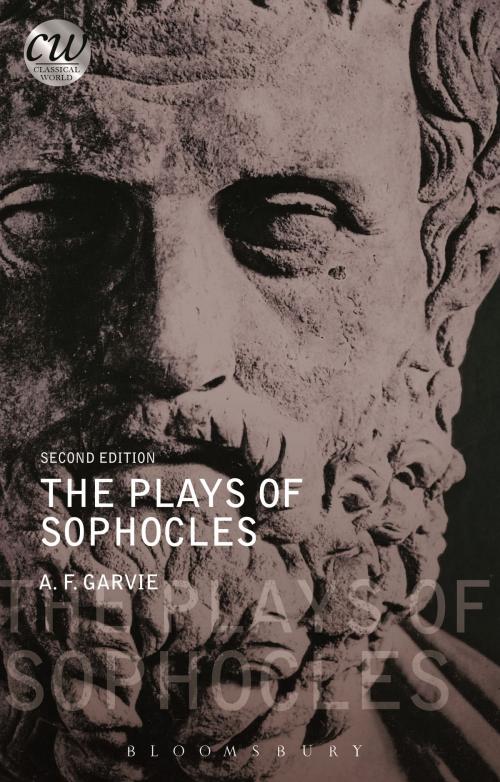The Plays of Sophocles
Nonfiction, Entertainment, Theatre, Playwriting, Fiction & Literature, Literary Theory & Criticism, Ancient & Classical| Author: | A. F. Garvie | ISBN: | 9781474233378 |
| Publisher: | Bloomsbury Publishing | Publication: | October 6, 2016 |
| Imprint: | Bloomsbury Academic | Language: | English |
| Author: | A. F. Garvie |
| ISBN: | 9781474233378 |
| Publisher: | Bloomsbury Publishing |
| Publication: | October 6, 2016 |
| Imprint: | Bloomsbury Academic |
| Language: | English |
The emphasis throughout this book, ideal for sixth form and early university students, is on Sophocles' tragic thinking, on the concept of the 'Sophoclean hero', and on the dramatic structure of the plays. The seven extant plays, Ajax, Women of Trachis, Antigone, Oedipus the King, Electra, Philoctetes and Oedipus at Colonus are assessed and a brief concluding chapter draws together what has been said in the seven studies. This second edition has been revised fully, with an updated further reading list and more detailed information on the chorus and staging of the plays.
The aim of the book is to help readers to understand why Sophocles is still worth reading, or going to see in the theatre, in the 21st century, and to show how far Sophoclean scholarship has moved in recent decades from the once prevalent view that he was a pious religious conformist who had nothing very profound or original to say, but who said it very beautifully.
The volume is a companion to The Plays of Euripides (by James Morwood) and The Plays of Aeschylus (by Alex Garvie) also available in second editions from Bloomsbury. A further essential guide to the themes and context of ancient Greek tragedy may be found in Laura Swift's new introductory volume, Greek Tragedy.
The emphasis throughout this book, ideal for sixth form and early university students, is on Sophocles' tragic thinking, on the concept of the 'Sophoclean hero', and on the dramatic structure of the plays. The seven extant plays, Ajax, Women of Trachis, Antigone, Oedipus the King, Electra, Philoctetes and Oedipus at Colonus are assessed and a brief concluding chapter draws together what has been said in the seven studies. This second edition has been revised fully, with an updated further reading list and more detailed information on the chorus and staging of the plays.
The aim of the book is to help readers to understand why Sophocles is still worth reading, or going to see in the theatre, in the 21st century, and to show how far Sophoclean scholarship has moved in recent decades from the once prevalent view that he was a pious religious conformist who had nothing very profound or original to say, but who said it very beautifully.
The volume is a companion to The Plays of Euripides (by James Morwood) and The Plays of Aeschylus (by Alex Garvie) also available in second editions from Bloomsbury. A further essential guide to the themes and context of ancient Greek tragedy may be found in Laura Swift's new introductory volume, Greek Tragedy.















